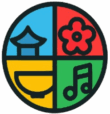Getting sick abroad can be unsettling, especially if you don’t know how the healthcare system works. The good news is that South Korea has one of the world’s most advanced, efficient, and affordable healthcare systems.
Whether you’re a short-term traveler with a stomach bug, an exchange student needing a check-up, or an expat dealing with something more serious, this guide will walk you through everything you need to know about hospitals, clinics, insurance, costs, and tips.
🔹 Types of Medical Facilities in Korea
Not all hospitals are the same in Korea. Choosing the right type of facility can save you time, money, and stress.
1. University Hospitals (대학병원)
- Large, advanced hospitals with cutting-edge facilities.
- Ideal for serious illnesses, surgeries, or specialist care.
- Doctors here are often leading experts in their fields.
- More expensive and longer wait times.
💡 Tip: To use National Health Insurance (NHI) at a university hospital, you’ll usually need a referral letter (진료의뢰서) from a smaller clinic. Without it, you’ll pay higher costs.
Examples:
- Seoul National University Hospital (Seoul)
- Yonsei Severance Hospital (Seoul)
- Asan Medical Center (Seoul)
2. General Hospitals (종합병원)
- Medium-to-large hospitals with a wide range of departments.
- Good for specialist visits (dermatology, orthopedics, ENT, etc.).
- More accessible than university hospitals, with reasonable costs.
3. Local Clinics (의원)
- Small, neighborhood-level clinics can be found almost everywhere.
- Perfect for common illnesses like flu, colds, fevers, allergies, or minor injuries.
- Short wait times, affordable fees (often ₩15,000–₩40,000 without insurance).
- No referral required.
💡 Most foreigners start at a clinic unless it’s an emergency or serious issue.
🔹 Common Specialties You’ll See in Korea
Korean clinics are often labeled by specialty:
- 내과 (Naegwa) – Internal Medicine: Colds, fevers, flu, stomach problems.
- 이비인후과 (Ibinu-gwa) – ENT: Ear, nose, and throat issues (ear infections, sinus problems).
- 피부과 (Pibugwa) – Dermatology: Skin issues, acne, eczema.
- 정형외과 (Jeonghyeong-oegwa) – Orthopedics: Bone/joint problems, back pain, injuries.
- 안과 (Angwa) – Ophthalmology: Eye exams, infections.
- 치과 (Chigwa) – Dentistry: Dental care, fillings, orthodontics.
- 산부인과 (Sanbuingwa) – OB-GYN: Women’s health and pregnancy.
🔹 Pharmacies (약국) in Korea
Pharmacies are everywhere and easy to recognize with the green cross sign.
- Open during regular hours; some 24-hour pharmacies are in major cities.
- Over-the-counter (OTC) medicines are available, but many drugs that are OTC abroad require a prescription in Korea (e.g., antibiotics, strong painkillers).
- Pharmacists explain dosage—if Korean is too fast, politely ask them to repeat slowly or write it down.
💡 Useful phrase:
“영어 설명 부탁해요” (Yeongeo seolmyeong butakhaeyo) – Please explain in English.
🔹 Costs of Healthcare in Korea
One of the biggest surprises for foreigners is how affordable Korean healthcare can be compared to the US, UK, or many European countries.
💰 With National Health Insurance (NHI)
- Foreign workers, international students, and long-term residents usually qualify.
- Covers 30–70% of costs, depending on the treatment.
Examples with NHI:
- Clinic visit: ₩5,000–₩10,000 ($4–$8)
- General hospital specialist: ₩20,000–₩40,000 ($15–$30)
- MRI scan: ₩200,000–₩400,000 ($150–$300)
💰 Without Insurance
- Clinic visit: ₩15,000–₩40,000 ($12–$30)
- General hospital: ₩50,000–₩100,000+ ($38–$75+)
- University hospital consultation: ₩100,000+ ($75+)
💡 Tip: Always request a detailed receipt (영수증) for travel insurance reimbursement.
🔹 Emergency Care in Korea
- Emergency Rooms (응급실): Located in general and university hospitals.
- Ambulance (119): Free, but staff may not always speak English.
- International Clinics: Many large hospitals in Seoul, Busan, and Incheon have English-speaking doctors and coordinators for foreigners.
📞 Important Numbers:
- 119 – Ambulance/Fire/Emergency
- 1339 – Korea Disease Control Hotline (English available)
🔹 How to Visit a Doctor in Korea (Step-by-Step)
- Check in at Reception: Hand over your ARC or passport.
- Get a Patient Number: You’ll be registered in the hospital/clinic system.
- Wait for Your Name/Number: Displayed on a digital screen.
- Consult with the Doctor: Usually brief but efficient.
- Pay at the Counter: Payment before picking up medicine. Most accept foreign cards.
- Pick Up Prescription at Pharmacy: Usually within walking distance.
💡 Cultural Note: Korean doctor visits are usually shorter (5–10 minutes) but very efficient.
🔹 Useful Korean Phrases
- “병원 가야 해요” (Byeongwon gaya haeyo) – I need to go to the hospital.
- “아파요” (Apayo) – I’m sick/hurt.
- “약 주세요” (Yak juseyo) – Please give me medicine.
- “영어 하세요?” (Yeongeo haseyo?) – Do you speak English?
- “보험 돼요?” (Boheom dwaeyo?) – Is insurance accepted?
🔹 Insurance Options for Foreigners
- National Health Insurance (NHI): Best for expats, students, and workers. Automatic enrollment after 6 months of residency (or sooner with employment).
- Private Travel Insurance: Essential for short-term visitors. Covers hospital bills and emergencies not included in NHI.
- Employer-Provided Insurance: Many companies include NHI + private coverage.
🔹 Cultural Differences in Korean Healthcare
- Efficiency: Visits are quick and systemized.
- Language Barrier: Not all staff speak English, though international clinics help.
- Technology: Many hospitals use digital kiosks, apps, and text notifications for appointments.
- Preventive Care: Annual health check-ups are common and affordable.
🔹 FAQs for Foreigners
Q: Do hospitals accept foreign credit cards?
➡ Yes, most hospitals and pharmacies accept Visa/MasterCard.
Q: Can I walk in without an appointment?
➡ Yes, especially at clinics. For big hospitals, booking ahead is better.
Q: Are Korean doctors trained abroad?
➡ Many have international training, especially in university hospitals.
Q: Can I find 24/7 hospitals?
➡ Yes, large hospitals in cities have 24-hour emergency care.
✅ Final Thoughts
South Korea’s healthcare system is modern, reliable, and affordable compared to many countries. Whether you’re visiting for a short trip or staying long-term, knowing how to navigate clinics, hospitals, insurance, and pharmacies will make medical visits much less stressful.
With this guide, you’ll know exactly what to do if you get sick in Korea—from finding the right clinic to getting emergency help.
